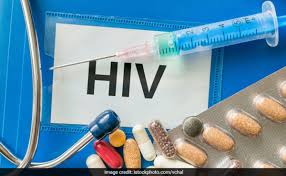Uganda has welcomed a historic global deal that will make the life-saving HIV prevention drug, lenacapavir, affordable to millions of people in developing countries.
The announcement was made on Wednesday at the Clinton Global Initiative (CGI) summit in New York, attended by world leaders, philanthropists, and health experts.
Under the agreement, the price of lenacapavir will drop from Shs102 million (US$28,000) a year to just Shs130,000 (US$40) in 120 low- and middle-income countries.
Lenacapavir is a twice-yearly injection that has shown 100% effectiveness in preventing HIV during clinical trials, including those held in Uganda earlier this year.
Experts say this breakthrough could revolutionize HIV prevention, especially in Africa where infection rates remain high.
Previously, the drug’s extremely high price meant only wealthy countries could afford it, leaving millions at risk in poorer nations.
Uganda’s Minister of Health, Dr Jane Ruth Aceng, who attended the summit, described the price cut as a major step forward.
On social media, she wrote:
“Honoured to join Former President @BillClinton and other delegates at #CGI2025 today for the announcement of a landmark price agreement for lenacapavir. This is a twice-yearly HIV prevention injection that will now be available for only $40 per year in eligible countries.”
Dr Aceng said Uganda, which has already hosted successful trials, will be among the first to roll out the drug widely.
The decision to lower the price follows months of pressure on Gilead Sciences, the manufacturer. In June, UNAIDS Executive Director Winnie Byanyima had warned that if the medicine remained unaffordable, it would not change the fight against HIV.
She urged Gilead to reduce the price, expand production, and give all countries a fair chance at ending AIDS.
Her appeal was echoed by activists and governments, arguing that the world could not afford another HIV prevention tool locked behind high costs.
With the new deal, public health experts believe lenacapavir could help achieve the global target of ending AIDS as a public health threat by 2030.
Uganda, where about 1.4 million people live with HIV, continues to battle high rates of new infections, particularly among young women and adolescent girls.
Officials say the new drug will add to existing prevention options like condoms and daily PrEP pills.
“This is more than just a price cut — it’s a lifeline for millions of people,” Dr Aceng emphasized.



